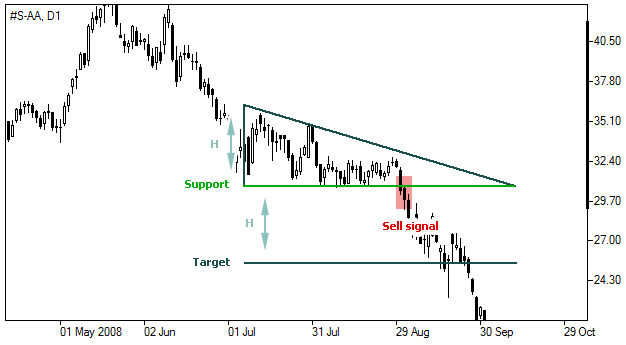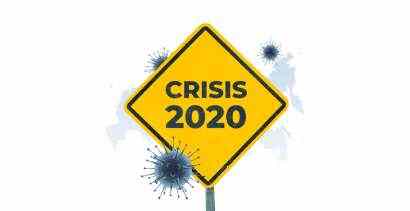
Reflexivity theory: George Soros’ Theory of Reflexivity


Thus for example an anthropologist living in an isolated village may affect the village and the behaviour of its citizens that he or she is studying. A new generation of scholars has gone beyond (meta-)theoretical discussion to develop concrete research practices for the implementation of reflexivity. These scholars have addressed the ‘how to’ question by turning reflexivity from an informal process into a formal research practice. While most research focuses on how scholars can become more reflexive toward their positionality and situatedness, some have sought to build reflexive methods in relation to other processes of knowledge production, such as the use of language. The latter has been advanced by the work of Professor Audrey Alejandro in a trilogy on reflexive methods.
They can play with, comment upon, debate, modify, and objectify culture through manipulating many different features in recognised ways. This leads to the metaculture of conventions about managing and reflecting upon culture. Equilibrium is a state in which market supply and demand balance each other. Fallibility and reflexivity suggests that the non-normal distributions we see from time to time are not all that surprising. It follows that the rules and models we use for normal conditions may not help us in extreme environments.
It’s also important to recognize that multiple feedback loops can act at once. Amidst multiple manias, panics, and crises in the 1990s and 2000s, Soros notes, was the super-bubble of credit and leverage. He originally believed that the financial crises in emerging markets during the 1990s would trigger the super bubble’s “turning point”. Instead, it continued to grow, culminating in an even greater meltdown following the subprime crisis. Firstly, Soros argues that the price of financial assets are not always an accurate measure of fundamental value. What’s more, fallibility implies some degree of “slippage” or uncertainty, as people learn, perceive, and act imperfectly.
Reflexivity requires us to see the circularity in the systems we are talking about. Soros likens reflexivity to the self-referencing loop in the Liar’s Paradox (“this sentence is false”). In most natural experiments, the act of thinking and observing does not affect the phenomena of interest. While confirmatory evidence may add credibility to a theory or hypothesis, it cannot prove it true, as it takes only one new observation to contradict everything we know. And even if we are not yet in possession of such information, we cannot say that no such evidence will ever come along. For this reason, we ought to be skeptical of ideologies that promise absolute truth.
Reflexivity was taken up as an issue in science in general by Popper , who called it the ‘Oedipal effect’, and more comprehensively by Nagel . These case studies show why investors need to be aware of the impact of market sentiment on equity prices. Improving market sentiment can dramatically improve a company’s prospects. But, on the other hand, deteriorating market sentiment can make it harder for a company to raise capital and attract talent. In the financial markets, we can see reflexivity in progress every single day. The distorted views of individual market participants can lead to different outcomes for securities that do not represent the underlying company’s fundamentals.
In Soros’s opinion, this is because the process of price formation is reflexive and dominated by positive feedback loops between prices and expectations. Once a change in economic fundamentals occurs, these positive feedback loops cause prices to under- or overshoot the new equilibrium. In some way, the normal negative feedback between prices and expectations regarding economic fundamentals, which would counterbalance these positive feedback loops, fails. Eventually, the trend reverses once market participants recognize that prices have become detached from reality and revise their expectations .
Why George Soros’ Theory of Reflexivity Matters
That is, what we experience subjectively can differ materially from what actually is. Mix in some reflexivity, and you can generate a plethora of interesting social behaviors and unintended consequences. Your feelings cannot change the laws of motion that move our planets around the sun.

When people do not have the time to fact-find and rationalize, things “can spin out of control”. Can swing subjective beliefs and expectations away from economic reality, sometimes for extended periods of time. Soros meant for his principles to be a general description of social and economic ‘thinking’ systems. And you’ll often find that the cheapest marketing channels are also the ones that get saturated first—this is one reason that companies whose original marketing plan is some kind of scrappy, low-cost guerilla marketing approach eventually find themselves doing TV ad buys and sponsoring stadiums. In International Relations, the question of reflexivity was first raised in the context of the so-called ‘Third Debate’ of the late 1980s. This debate marked a break with the positivist orthodoxy of the discipline.
Soros reminds us that people use dichotomies, narratives, and other heuristics to cope with the immensity of information around them. Such tools can imply a ‘tipping point’ in which behavior switches from self-correction to self-reinforcement, and vice versa. Furthermore, standard theory does not account for “time pressure” under crises episodes.
Principle of Reflexivity — George Soros on Fallibility, Feedback, and Super Bubbles
He often makes reference to the use of leverage and the availability of credit in initiating the process, and the role of floating currency exchange rates in these episodes. Giddens, for example, noted that constitutive reflexivity is possible in any social system, and that this presents a distinct methodological problem for the social sciences. Giddens accentuated this theme with his notion of “reflexive modernity” – the argument that, over time, society is becoming increasingly more self-aware, reflective, and hence reflexive.
By being reflexive we acknowledge that we cannot be separated from our biographies. For example, towards the end of last year, Tesla announced it would be raising $5 billion through an at-the-market offering of shares. A few years ago, this sort of cash call would have had a substantial negative impact on the stock price, but the market was happy to absorb the extra shares on this occasion. This provided Tesla with a massive cash infusion to fund its growth program. I think it’s unlikely this would have been possible without the backing of the market.
Reflexivity in economics is the theory that a feedback loop exists in which investors’ perceptions affect economic fundamentals, which in turn changes investor perception. The theory of reflexivity has its roots in sociology, but in the world of economics and finance, its primary proponent is George Soros. Soros believes that reflexivity disproves much of mainstream economic theory and should become a major focus of economic research, and even makes grandiose claims that it “gives rise to a new morality as well as a new epistemology.” Thus, for example, an anthropologist living in an isolated village may affect the village and the behaviour of its citizens under study. The observations are not independent of the participation of the observer.
Soros laments, for example, that while he anticipated the market’s response during the subprime crisis, he underestimated its volatility and took too large a position — “ learned the hard way that the range of uncertainty is also uncertain”. It is common for practitioners in financial economics and econometrics to assume a neat, normal distribution to the spread of movements in prices. As Benoit Mandelbrot found in the Variation of Certain Speculative Prices, and as others later showed, prices can and do exhibit “fat tails” from time to time.

The post-positivist theoretical restructuring was seen to introduce reflexivity as a cornerstone of critical scholarship. Bourdieu argued that the social scientist is inherently laden with biases, and only by becoming reflexively aware of those biases can the social scientists free themselves from them and aspire to the practice of an objective science. For Bourdieu, therefore, reflexivity is part of the solution, not the problem. Reflexivity includes both a subjective process of self-consciousness inquiry and the study of social behaviour with reference to theories about social relationships. Soros argues that an observer’s perception of their reality is always partial, subjective, and distorted.
Reflexivity (social theory)
Indeed, it led him to develop his own principles of fallibility and reflexivity, which Soros argues is more representative of real world behavior. George Soros discusses his principles of fallibility and reflexivity, and their implications for financial markets, social systems, and economic theory. This volume reviews key debates concerning reflexivity in theory, methods, and practice. It mounts a defence of reflexivity against new materialist and post-qualitative critiques and the pressures exerted on scholars from the neoliberal marketized university system which privileges fast academia at the expense of slow, reflective scholarship. While defending reflexivity, this book also those identifies issues which plague mainstream sociological operationalizations of a positivistic form of reflexivity.
Reflexivity has emerged as both an issue and a solution in modern approaches to the problem of structure and agency, for example in the work of Anthony Giddens in his structuration theory and Pierre Bourdieu in his genetic structuralism. Eventually things stabilize at a more rational level, following fundamental theory. Suddenly, all those healthy dynamics reverse; lenders don’t want to pour money into a shrinking industry, so the cost of borrowed capital goes up. With all of that investor enthusiasm, companies in the sector are now able to borrow more cheaply. And that’s what they do—as long as borrowing gets cheaper faster than returns on investment go down, everyone is making more money.
Soros has often claimed that his grasp of the principle of reflexivity is what has given him his “edge” and that it is the major factor contributing to his successes as a trader. For several decades there was little sign of the principle being accepted in mainstream economic circles, but there has been an increase of interest following the crash of 2008, with academic journals, economists, and investors discussing his theories. Soros believes that reflexivity contradicts most of mainstream economic theory.
In both cases, these two organizations have effectively reduced their cost of capital to zero due to high stock prices. As a result, both companies have drastically improved their financial positions by raising money from the market with almost no cost whatsoever. Michel Foucault’s The order of things can be said to touch on the issue of Reflexivity. Foucault examines the history of Western thought since the Renaissance and argues that each historical epoch has an episteme, or “a historical a priori”, that structures and organises knowledge. Foucault argues that the concept of man emerged in the early 19th century, what he calls the “Age of Man”, with the philosophy of Immanuel Kant.

